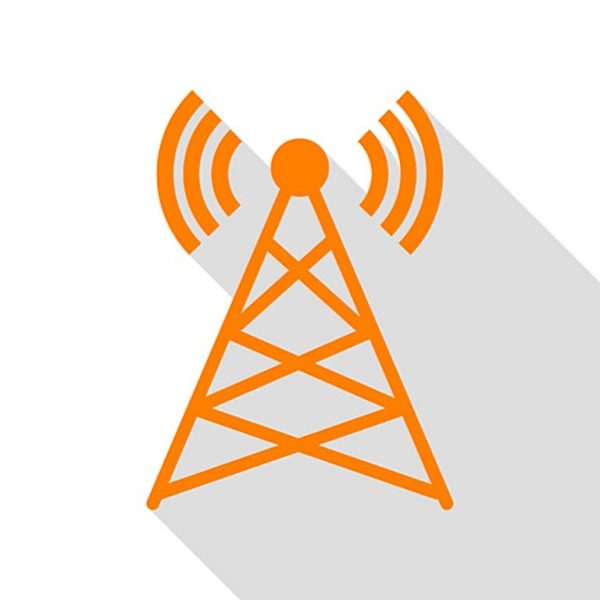Virgin Media O2 Reveals UK Plan for 2G Mobile Switch Off

The CTO of network operator O2 (Virgin Media), Jeanie York, has today become the first UK mobile provider to set out their plans for withdrawing the old 2G service, which will see the first customers beginning to be moved off that platform in 2025. But they won’t be switching 2G off completely, at least not for a long time.
The UK government and all major mobile operators have so far agreed to phase-out existing 2G and 3G signals by 2033 (here), which will free up radio spectrum bands so that they can be used to further improve the network coverage and mobile broadband speeds of more modern 4G and 5G networks, as well as future 6G services. The switch-off will also reduce the operators’ costs and power consumption.
Last year saw O2 (VMO2) become the final operator to reveal their plan for switching off the old 3G mobile (mobile broadband) network, which unlike their rivals is a process that won’t actually begin until 2025. The withdrawal will then occur in phases, with completion by the end of that same year. Vodafone and EE have largely already gone through this process, while Three UK expects to complete by the end of 2024.
Advertisement
However, the situation around 2G is more complicated, not least because older 2G signals remain useful as a low-power fallback (they’ll be sticking around for a lot longer) and are still necessary for some rural areas, as well as for particular applications (e.g. many Smart Meters and other Internet of Things (IoT) / M2M services are dependent upon 2G). Conversely, this means that 3G is going before anybody even starts to scrap 2G.
Suffice to say that, until now, none of the major UK mobile operators have given any solid details on their plans for sunsetting 2G services. But that just changed.
Jeanie York, CTO of VMO2, said:
“With [the 3G switch-off] work progressing well, we’re now assessing the future of our older 2G network. Currently, less than 1% of our customers use 2G-only devices, and the network carries less than 0.1% of data traffic. All mobile operators have agreed with Government to phase out 2G networks over the next decade. With future-proof networks now in place and ongoing investments helping to further expand them, next year we’ll start work to move almost all remaining traffic away from the 2G network.
Unlike our 3G network, we won’t be turning 2G off completely. In fact, we expect to continue operating it for several years and it will play an important role in carrying emergency calls in more remote areas without 4G coverage. We’ll also use it to support data traffic for smart energy meters, contributing to the UK’s transition to a lower-carbon economy.
By redirecting most ‘human’ traffic to newer, faster and more energy-efficient networks while reserving the older slower network for some data-light ‘machine’ communications, our customers will get the best possible experience whether they are calling, messaging or using data on the go.
For most customers, these changes will happen seamlessly in the background, and they won’t notice any change. However, a small proportion of customers will need to look out for messages from us telling them what they need to do – either because they’re using a very old device which won’t work on 4G, need a new SIM or because they need to turn on 4G calling.
We’re committed to helping those who may need additional support such as those very small proportion of customers still using older devices. We will be directly contacting any our customers who need to take action, guiding them through the process and explaining the steps they need to take.
As a technology business we’re forever changing and upgrading; standing still would mean failing our customers and not being prepared for future needs. From London and Cardiff to rural parts of Scotland and Northern Ireland, we are committed to keeping our customers connected and delivering not only the services needed for today but ensuring we’re ready for the technologies of tomorrow too.”
At this point it’s important to highlight that the 3G switch-off did expose a few weak areas of 4G coverage, where some customers of different operators and in certain locations found they were only able to access a 2G service after the old 3G one was withdrawn.
Complaints like those above are in the minority, but we have seen a few of them. Suffice to say, operators will need to be particularly cautious with the 2G switch-off, as a tiny proportion of people may have no fallback if 4G isn’t improved first. Likewise, as expressed by Jeanie above, some people still use old 2G-only handsets and supporting their transition will be a key focus.
Advertisement
Finally, Jeanie York added that VMO2 invest £2m every single day into their mobile networks and have already brought 5G to over half of the UK, while 4G is available to 99% of the population with continued work taking place to address rural blackspots through the Shared Rural Network (SRN) programme and boosting capacity. Jeanie added that they also “remain on track to switch off the [3G] service next year.”
Mark is a professional technology writer, IT consultant and computer engineer from Dorset (England), he also founded ISPreview in 1999 and enjoys analysing the latest telecoms and broadband developments. Find me on X (Twitter), Mastodon, Facebook, BlueSky, Threads.net and Linkedin.
« Ofcom Review UK Mobile Licence Fees for 900MHz, 1800MHz and 2100MHz






















































Does that mean in places where the phone drops to ‘E’ instead of ‘4G’ or ‘5G’, as often happens on train journeys, there will be no service in future instead of a limited service as now?
That depends on the reason for your phone dropping to 2G.
If this is because there’s no 4G coverage there, then yes you would get no service when 2G is switched off.
It could well be because of re-selection criteria being incorrectly set. That’s a much quicker fix.
No this announcement is that they are moving things around on the network to keep support for lower data services like smart meters and emergency services but the more valuable ‘faster’ spectrum will be repurposed to 4/5G.
In the future it will be all switched to 4/5G and there should not be any loss of service because it is the same physical infrastructure.
Potentially. But also, in absence of a 2G signal, a phone would just cling on to 4G for a little longer.
There’s also 700mhz 5G slowly rolling out – lower frequency so signal should travel slightly further than current 4G (and 2G)
I’ve always suspected 2G networks will go the same way as the pager networks – it’ll get phased out for consumer access, but remain around for niche and M2M use cases.
EE, Vodafone & O2 could then spin out their 2G networks and merge it into a single network operated by someone like Arquiva…
I agree, it makes most sense to have a single small low-data low-cost 2G service permanently (or atleast until 2050) operate for smart meters and such. It can be run by ofgem or a energy industry consortium/nonprofit because it should be cheaper to have this than replace all the existing energy meters.
Michael, interesting point on the cost of cost of running a legacy network, versus replacing various meters.
But FYI electricity meters are replaced every 10 years (or sooner).
… and the energy meter doesn’t need to be replaced to enable 2G switch off, only the communications hub (which connects to the electricity meter, but is a separate module).
How is this going to work out? Not a great idea honestly if people can’t use data or texts on it (sounds like only for 999 calls).
O2 has a 2G only site here as it is, on Chosen Hill. It provides coverage to part of the A38, but what’s going to happen if 2G is killed off? Less coverage there?
Since the area is Vodafone host and I’m guessing it was never adopted by Vodafone, what is honestly going to happen?
No- they should just upgrade to using 4/5G.
There is no loss of coverage.
As for Vodafone, the industry and government have agreed to a 2G & 3G shutoff in 2033, they have already switched off 3G services.
@Michael I honestly don’t see that happening. It never got 3G in the first place and I assume O2 thinks 104117 already provides a good enough service, but they probably don’t realise it covers the A38 nicely (you can look at BTS 6541 on Cellmapper).
O2 will apparently be unwinding the area in a few years, I just hope they add 4G (perhaps on a B8+20+28DSS setup?) but they probably won’t.
I’m glad we soon finish shutting down 3G services but I hope 2G will stay with us well beyond 2030. While 4G (and 5G, of course) are great for data but you might have different experience for voice calls. Each network has to verify each phone model in order to enable VoLTE and as a result, only a small subset of VoLTE-enabled phones are usable on each carrier’s network. Until a generic VoLTE (and VoNR) profile is available and widely adopted, I think it’s premature to even think about withdrawing 2G services.
If there is no 2G fall-back and how VoLTE operates today, it would be nearly impossible to join the market for any new handset manufacturer as they wouldn’t be able to offer voice calls. I hope the CMA will notice this and have a say to prevent mobile voice to become a virtual walled garden.
https://www.ofcom.org.uk/phones-and-broadband/coverage-and-speeds/3g-switch-off/
I also support 2g sticking around but only for smart meters and IoT devices.
For customers, government and industry have agreed to a 2033 deadline for 2G support.
I do not believe the CMA will intervene in a market decision like this, or have the authority to force 2G support.
The plan is to modify selection criteria so that all devices are pushed onto 4G with 2G as a last resort. There have already been tests in a few rural areas of Scotland to test this, by pushing device to 2G only at really low signal strength (somewhere around -125 to -130 dBm will push down to 2G).
Load balancing currently for 3G will be disabled and devices will be set to prefer 4G essentially at all costs.
2G will essentially disappear for everyone bar a few very rural 2G only sites which will be dealt with, a bit up in the air with VodaThree merger as some are Vodafone controlled. O2 ones should eventually receive an upgrade but maybe not soon.
Will implement forcing up to 4G to push devices up even during data flow, I think EE already does this.
2G for specialist cases, M2M etc but 4G for consumer cases.
Away from marketing rubbish, I do think O2 network will be quite different after 2025.
Ah thanks for clarifying that information.
So this basically results in no loss of coverage then?
I guess the 2G only site here will remain as it is even after selection criteria changes?
(p.s. we’ve missed you on the forums)
Jeanie York, CTO of VMO2, said: “…..because they need to turn on 4G calling”. So, it begs the question: When is VMO2 planning to make 4G and WiFi calling available to all of their customers and not just those on monthly plans with compatible devices?
I have a feeling they will move PAYG customers to giffgaff, and close there own PAYG offering..
Andy M, what makes you think that ?
bang goes my GPS tracker then
It is not only text and phone messaging that users 2g so do hp printers so I and a lot of people and companies education establishments will not be able to do in house printing any more thank you verging and the government
Are you sure you don’t mean 2.4 GHz wifi? I don’t think I have ever seen a printer use the 2G phone network.
I believe you’re getting mixed up between 2G mobile signal, and 2.4Ghz WiFi signal. They are completely separate things and nobody is turning off 2Ghz WiFi.
VOLTE doesn’t yet work on roaming. Until they sort that out they must not turn off 2G in any country.
Which is why everytime I go to Italy I refuse to use my personal EE and a business o2 SIM.
None of them work with VoLTE roaming and 3 out of 4 MNOs in Italy already shut off 3G and don’t even install 2G on new masts, I had situations in which GSM was unavailable because no coverage and I couldn’t even call…
So now I pay 7€/month for 100GB in 5G to an italian MNO, on paygo when I need it, instead of “roaming packages”.
Some networks do support VoLTE roaming – Vodafone lists 14 countries they support it in here https://www.vodafone.co.uk/business/4g-calling-abroad
VoLTE Roaming is supported on Vodafone and O2. See https://docs.google.com/spreadsheets/d/126in1zdWmjTkPB1dU2OvWF7BzTpNWiJLPGWgZ3C0n-Q/
Italy is included in Vodafone’s list but not sure about O2.
One thing I do miss about the older 2G and 3G systems is all you had to do was just pop the SIM card into your unlocked handset and it would just work. Or if you were roaming, you didn’t have to worry about operator profiles or such like.
o2 needs to allow pay as you go customers to use vo lte
also in general how vo lte works, if you have a iphone, it’s easy to get vo lte to work
not soo easy on android phones
this needs to change
Regarding switching off 3G: O2 will need to do something about how they handle their prepay customers as once you’ve used up your current data allowance, they kick you off the 4G network, forcing you to connect only on their 3G network.
So what will happen to all of this decomissioned electronics? As I understand it some can be repurposed but not all
So what will happen to all of this decomissioned electronics? As I understand it some can be repurposed but not all
good question, it would e waste ? not sure if recycling can help
O2 and Vodafone are a joke. The 4g network in rural areas is useless. slow 2mb 4g speeds since they started the rural mast sharing agreement and demolishing their own towers.
I run ee o2 and voda and always EE trumps the other networks apart from in very specific areas but even then EE can still manage 10mb speeds with no bars of signal
The “Not so much a communication system, but a system for ripping the revenue out of twat 14-30 years olds” is changing and living-up to its title.
Together with the 4G and 5G not-spots, and BT’s fluff-up with Digital Voice for the vulnerable, expect an accelerated return to the 14th Century . . . . of course everything in the board-room will be just Dandy.Way to casual an approach.
So, the corporate and the wealthy, no probs with the transition, . . .large numbers of the less fortunate well and truly stuffed.
Without the provision of proved and substantial alternative services, its discriminatory.
Why isn’t OFCOM holding feet to fire ?
What happened to statutory service obligation and if there isn’t one, there should be.
Can’t think of a better way to organise a strategic national resource like mobiles, except for vesting control entirely in the hands of individual company board rooms and their random whims. How on earth could economic growth suffer or chaos occur ?
The key thing is always to discriminate against the mass of retail customers and treat them as if they were No 2s and give priority to the minority needs of corporate robbers.
Give me strength !
Are any other countries still using 2G for anything?
This is an outrage!
There are many good 2g phones out there which should not be discarded as electronic waste. Some of them aren’t even that old.
My phone is 2g only and purchased only a few years ago in 2020. I shouldn’t be forced to upgrade handset – the upgrade treadmill is a source of endless misery!
Let me guess, the people responsible for this decision are Apple users who always buy a top of the range iPhone every 12 months and they think everybody else should be forced to buy a new phone every 12 months aswell.
Mobile phones are a massive waste of money and I deeply resent being forced to buy one, simply so I could do online banking and shopping OTP codes.
I found this:
https://piblu.co.uk/2024/08/28/switch-off-announcement-o2-2g-and-3g/
It suggests that O2 2G will essentially become ’emergency 999 calls only’ in Oct ’26… seems a bit early.